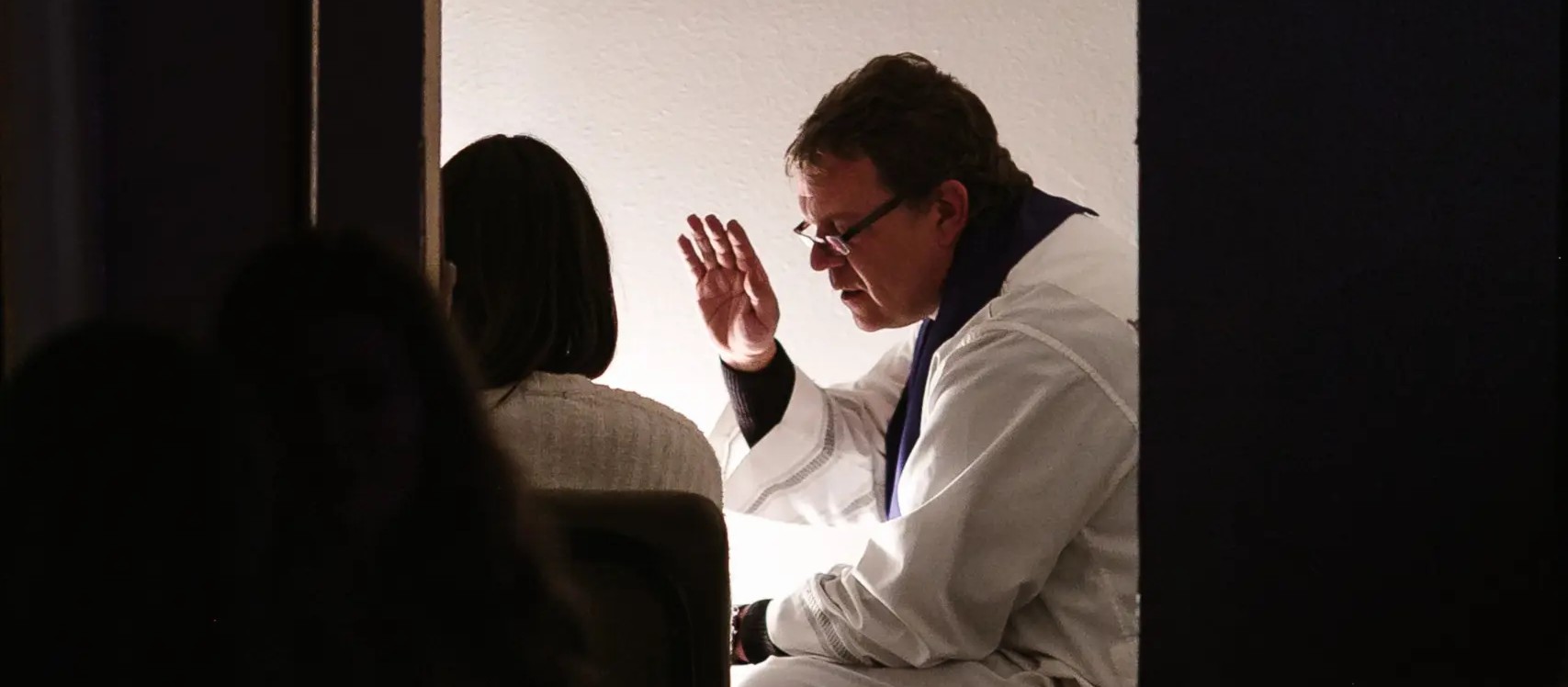Preparation for the Sacrament of Penance
National Liturgical Council

Preparation
As with the celebration of any sacrament, it is important that we properly prepare ourselves before the liturgy. A good preparation will lead to a good and meaningful celebration. To simply ‘turn up’ without having given any thought to what we are doing can often result in confusion and coming away from the celebration sensing that we have missed something.
How Do We ‘Inform’ Our Consciences?
The first step in preparation is to discern how it is we should be acting as a Christian people. The Church has always taught that it is the responsibility of its members to make certain that they know the teaching of the Church in the area of morals. We have a set of beliefs that are very carefully explained in the Catechism of the Catholic Church. We also have a code of conduct for Christian living based on the Ten Commandments and the teaching of Jesus himself.
We cannot possibly know what it is we should be doing and believing as Catholic Christians without a thorough knowledge of the Church’s teaching. That knowledge will ‘inform’ our consciences so that when we stray in either belief or practice our conscience will act as our ‘alarm clock’ and remind us that we are failing to live out our discipleship. Various forms of education in faith are therefore very important for every parish.
If we do not know what we believe, how can we adequately measure ourselves against the claims of the Gospel?
How Do We ‘Examine’ Our Consciences?
The old manuals for preparing for this Sacrament of Penance used to supply a long list of questions that the penitents could ask themselves. These questions related to almost every area of life and were a useful guide. There was a tendency for some people to see their examination as a statistical exercise thus not really connecting with the fact the sin had been committed and repentance was necessary.
The Ten Commandments remain a useful measuring stick for the person preparing for Penance, but also the teaching of Jesus in the Two Great Commandments is also a good gauge. 'You shall love the Lord your God, with all your heart, with all your soul and with all your strength, and you shall love your neighbour as yourself. On these two commandments depend all the law and prophets.'
Thus as we reflect on the teaching of the Church in faith and morals we also use our consciences to convict us of our failure to live an authentic Christian life.
What Is Sin and How Do We Recognise It and Name It?
There has been a tendency in some quarters for people to become almost embarrassed by the idea of sin. So what then is sin? Sin is anything that separates us from God and thus disfigures our relationship with him and with others. If our relationship with God is broken it will have consequences for those around us.
As the Catechism tells us ‘Sin is an offense against God.’ (1850)
Sin then is a state of being that needs to be dealt with so that God’s grace and goodness can be predominate in our lives and affect the way we live.
Sin takes many forms. The Church has taught that some sins are more grave and serious than others. Those identified in the Ten Commandments are certainly what we have traditionally called mortal sin whilst failure in living up to Christian standards is less serious and has been referred to as venial sin. Whilst such categories are helpful the fact and result of sin is highly personal in whatever form it takes.
The Sacrament of Penance then provides the remedy for sin by the forgiveness that comes from God through Christ. It is important to name our sins for what they are. Often we are more conscious of the sins we commit rather than the sins of omission.
Christian living has obligations with it and there are also consequences for the broader community when we have failed to act in matters of justice. Social sin is the collective responsibility of us all.
This article was originally published in ‘Healing Ministry’. © Diocese of Parramatta. 2001, 2007. Reprinted with permission.
